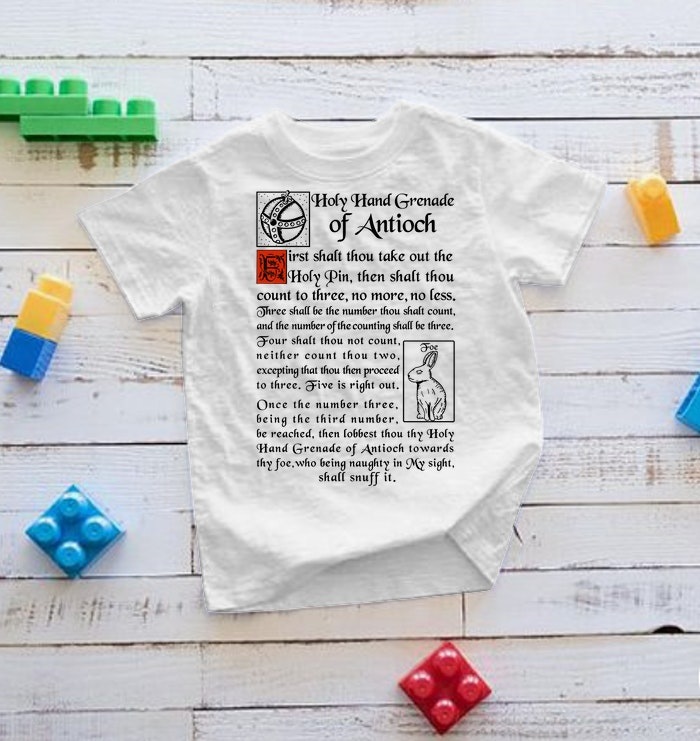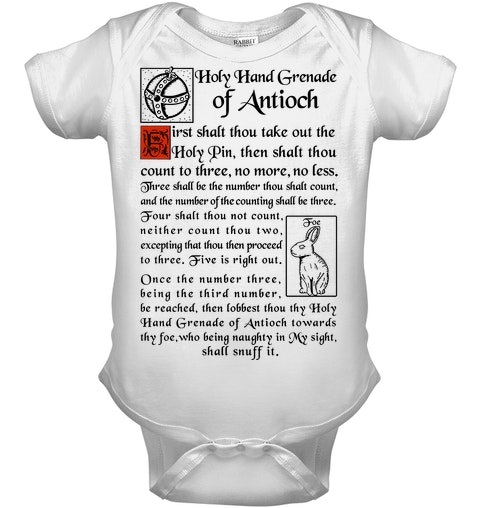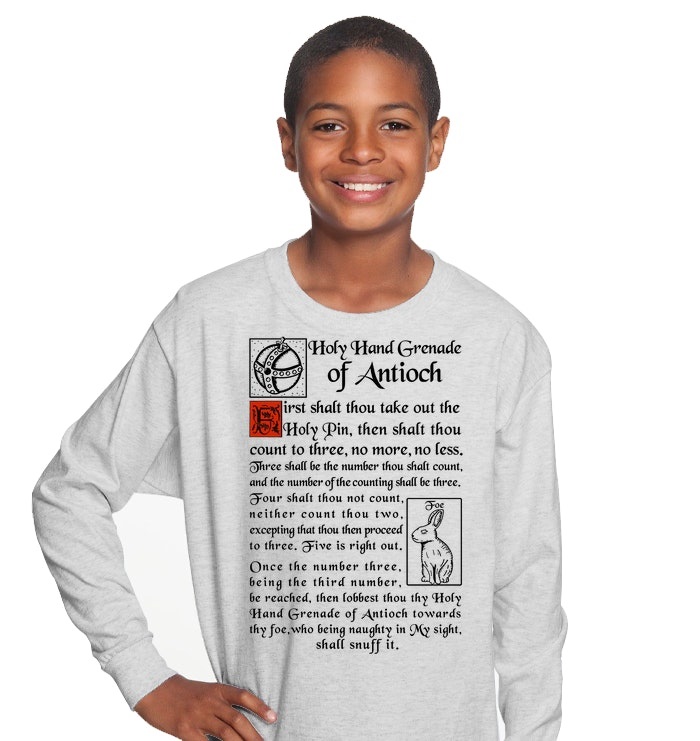God Holy Hand Grenade Of Antioch Shirt
Faith, in this sense, encompasses more than mere religious belief. It also entails a negative belief about other kinds of belief, a peculiar kind of exclusivity found only in true monotheism. We might call that exclusive sort of belief the tradition of faith. Admittedly, all kinds of religion rely on tradition. But let’s try a thought experiment. Imagine for a moment that we could wave a magic wand and make everyone on the planet forget everything they know about religion. At the same time, we can erase every word of religious scripture, along with all religious representations in art and literature. The idea is to imagine a state of total religious amnesia, so that we’d all be starting from scratch. If we wiped all religion away, anthropology suggests, it would rapidly reappear in new yet familiar forms—but probably without monotheism, assuming that history is any guide. Religion in the broad sense clearly represents a human instinct, since we find it in all human societies. But we can safely say that there’s no instinct for monotheism as such, since no society ever came up with the idea independently after it first appeared. There were no monotheists until the idea of one God was invented, and all monotheists ever since have worshipped their one God only because they got the idea from those who came before them—which may have something to do with why monotheists speak of being converted, or “turned together” toward the worship of a single, unitary God. If you worship that sort of God, you share in that single, though by now hardly unitary, tradition. Some will object that their faith is entirely a matter of their own internal attitude, but my point is that this internal attitude wouldn’t exist, and never has existed, without a tradition to guide the shaping of it. The monotheistic tradition of faith seems to focus and amplify the mental faculty of faith, concentrating the idea of the divine into a single, exclusive deity.


God Holy Hand Grenade Of Antioch Shirt
That the world’s monotheisms descended from a single ancestor probably also helps perpetuate the common perception that it all started with Abraham. Who else but the Jews, those famous monotheists from way back?Yet religious scholars agree that this isn’t quite the sort of belief that Abraham would have recognized. Modern research suggests that the religion of Abraham and his fellow Hebrews was not, strictly speaking, monotheistic at all, but “monolatrous.” In other words, during Abraham’s time and for many centuries afterward, the ancient Hebrews worshipped not a God whom they held to be the sole deity in existence, but simply one god among many, a god whom they conceived of as being more powerful than the jostling plethora of lesser gods worshipped by other peoples, but who nonetheless shared the stage with them. This essentially polytheistic outlook accords with the frequent mention of other gods in the Hebrew Bible (Old Testament), for example. It also accords with the way that Abraham’s faith has the feel of a contractual arrangement. When religious scholars use the word “faith” at all to describe Abraham’s attitude to his God, it’s generally coupled with a word like “juridical.”

























